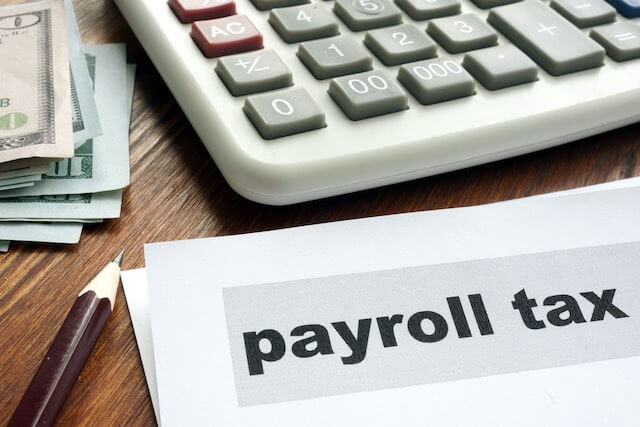It appears that the Trump Administration’s move to defer payroll taxes is going to be applicable to federal employees.
I honestly wasn’t sure if it would apply to the federal workforce or not, and we had received some questions from our readers wondering if it would. We now have some more details.
Congressman Don Beyer (D-VA) has publicly stated that the government will begin deferring the withholding of payroll taxes for federal workers in September.
Beyer, who represents a district home to many federal employees, issued a press release in which he made the statement about the payroll tax deferral. The tax deferral is based on an executive order issued by President Trump directing the Treasury Secretary to enact the deferral in light of the ongoing coronavirus situation.
A notice was also recently issued by the Agriculture Department’s National Finance Center in which it details preparations the agency is making to defer the tax withholdings which seems to confirm what Beyer said about the tax deferral applying to the federal workforce, at least with respect to that agency.
The Internal Revenue Service has also issued guidance on implementing the tax deferral. It instructs employers who defer the tax withholdings to pay them after the first of the year.
Which Federal Employees Would Be Eligible?
The executive order states that the payroll tax deferral will apply to employees making less than $4,000 in gross wages in a bi-weekly pay period:
The deferral shall be made available with respect to any employee the amount of whose wages or compensation, as applicable, payable during any bi-weekly pay period generally is less than $4,000, calculated on a pre-tax basis, or the equivalent amount with respect to other pay periods.
Will the Tax Still Be Owed?
As things stand now, yes, it would appear so; a deferral is just that, “a postponement of an action or an event,” to quote the dictionary. The IRS guidance also said as much in which it instructed employers to withhold the deferred taxes after the first of the year. So presumably, any employees who have taxes deferred will owe them at a later time.
However, there is an important section in the executive order to note. It reads:
Sec. 4. Tax Forgiveness. The Secretary of the Treasury shall explore avenues, including legislation, to eliminate the obligation to pay the taxes deferred pursuant to the implementation of this memorandum.
Could the tax ultimately be forgiven by the government? Yes, per the executive order, but look carefully; the president merely directs the Treasury Secretary to explore how this might be done. It would be pure conjecture on anybody’s part at this point as to whether or not this is likely to happen.
So What Does All of This Mean?
If you are a federal employee who finds his or her payroll tax withholdings being temporarily deferred, you may find that you have more money than usual withheld from some of your paychecks after the first of the year. The IRS said in its guidance that employers “must withhold and pay the total Applicable Taxes that the Affected Taxpayer deferred under this notice ratably from wages and compensation paid between January 1, 2021 and April 30, 2021 or interest, penalties, and additions to tax will begin to accrue on May 1, 2021, with respect to any unpaid Applicable Taxes.”
The guidance also states, “If necessary, the Affected Taxpayer may make arrangements to otherwise collect the total Applicable Taxes from the employee.”
Although any taxes owed may simply be withheld from future checks, you would be wise to not spend the extra money just yet in the meantime. Take the money that would have gone to this tax and put it aside in a separate account on the assumption that you will still owe it at some point in the future and pretend it’s not there. If you go out and spend it on new clothes, a night out, a vacation, etc. and don’t have enough money in your savings to pay a potential future tax bill, you might find yourself in an unpleasant predicament.
If the government does end up forgiving the taxes, then consider yourself lucky! That money you set aside is now a nice unexpected surprise; consider it a bonus.
For those who may not regularly study the details of their paychecks, this is a great opportunity to scrutinize each line and understand what is being withheld. You may be surprised to see that there are a number of taxes that add up quickly. You may also have money being taken out for other things, i.e. Thrift Savings Plan contributions, insurance benefit payments, etc. If you’re paying for extra benefits, do they look correct? Do you still need them? Are you contributing enough to the TSP to get the agency match? That’s free money after all! Those are types of things that you should review regularly in your paycheck.
Lastly, check with the appropriate department within your agency (i.e. payroll, human resources) if you have questions or aren’t sure about your situation. Who knows – things could be different at your agency.


